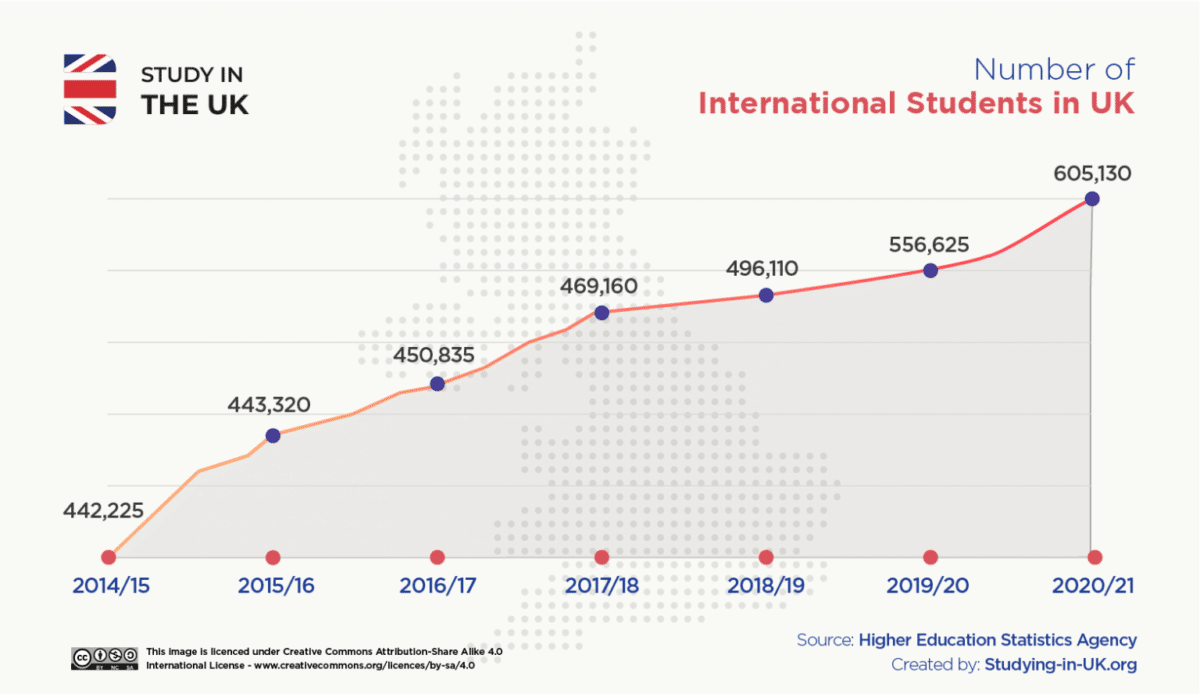The UK has long been an attractive destination for most international students seeking a visa to study abroad. With its prestigious universities and global reputation, Britain’s higher education system has benefited greatly from the influx of ambitious students from all over the world.
However, Home Secretary James Cleverly has expressed concern that international students may be negatively impacting the UK’s higher education system. He has thus commissioned the Migration Advisory Committee (MAC) for a review of student visas, arguing that overseas enrolment could potentially harm British institutions.
He claims that the post-study work visa, which allows international students to stay in the UK for up to two years after graduation in order to find work, could harm the chances of local students in an already competitive job market.
Cleverly’s initiative highlights the UK’s intention to welcome highly skilled students from around the world, while also aiming to prevent exploitation of the system. He emphasised the ease with which one can move from a minimal fee, one-year course to two years of employment, followed by a further four years with lenient salary expectations, leading to open-ended employment opportunities at a lower wage threshold than other skilled foreign workers.
Impact of Visa Restrictions on Higher Education
Universities have warned that a tightening of student visa rules could have a detrimental effect on the higher education sector. International students make a significant contribution to university income and help to subsidise resources for domestic students.
For Rachel Hewitt of MillionPlus, the higher education charity, today’s government review is an attempt to undermine the success of the UK’s higher education system. She finds it curious that the UK is seeking to reduce foreign student admissions while welcoming talent in other domains.
Meanwhile, Jamie Arrowsmith of Universities UK International shares universities’ concerns about the limited visibility of the review. The motivation for international students to invest in UK degrees and support the domestic economy is emphasised by post-study employment opportunities.
Concerns Over Foreign Students
The admission of large numbers of overseas students to the UK could be a drain on resources and public funding for local students. Considerable taxpayers’ money and government resources are needed to provide student visas, health care, housing and other services to overseas students. Therefore, UK citizens are likely to be given priority over international students, given the limited university places and funding available.
Cultural and Social Challenges
Growth in international student numbers could pose a challenge to British cultural values and social cohesion. Students from diverse cultural backgrounds may face difficulties assimilating into British culture and society, such as communicating in English or understanding British cultural norms.
Risks to National Security
Granting foreign students visas and access also poses potential national security risks. Conducting thorough background checks on all foreign student applicants can be challenging.
Call for a Nuanced Review Process
Stakeholders have requested a thorough and evidence-based review that takes into account the costs and benefits of international students. Instead of simply reducing visas, they suggest reforming the policy to prevent abuse while still recognizing the contributions of genuine students.
For example, the policy review may consider restricting work rights for students from some countries, capping the number of students in certain courses, or increasing monitoring of post-study employment.
In order to balance these competing interests, a nuanced, well-researched policy is needed that protects the welfare of citizens without damaging the higher education sector that contributes so much to the UK’s global standing and soft power.










